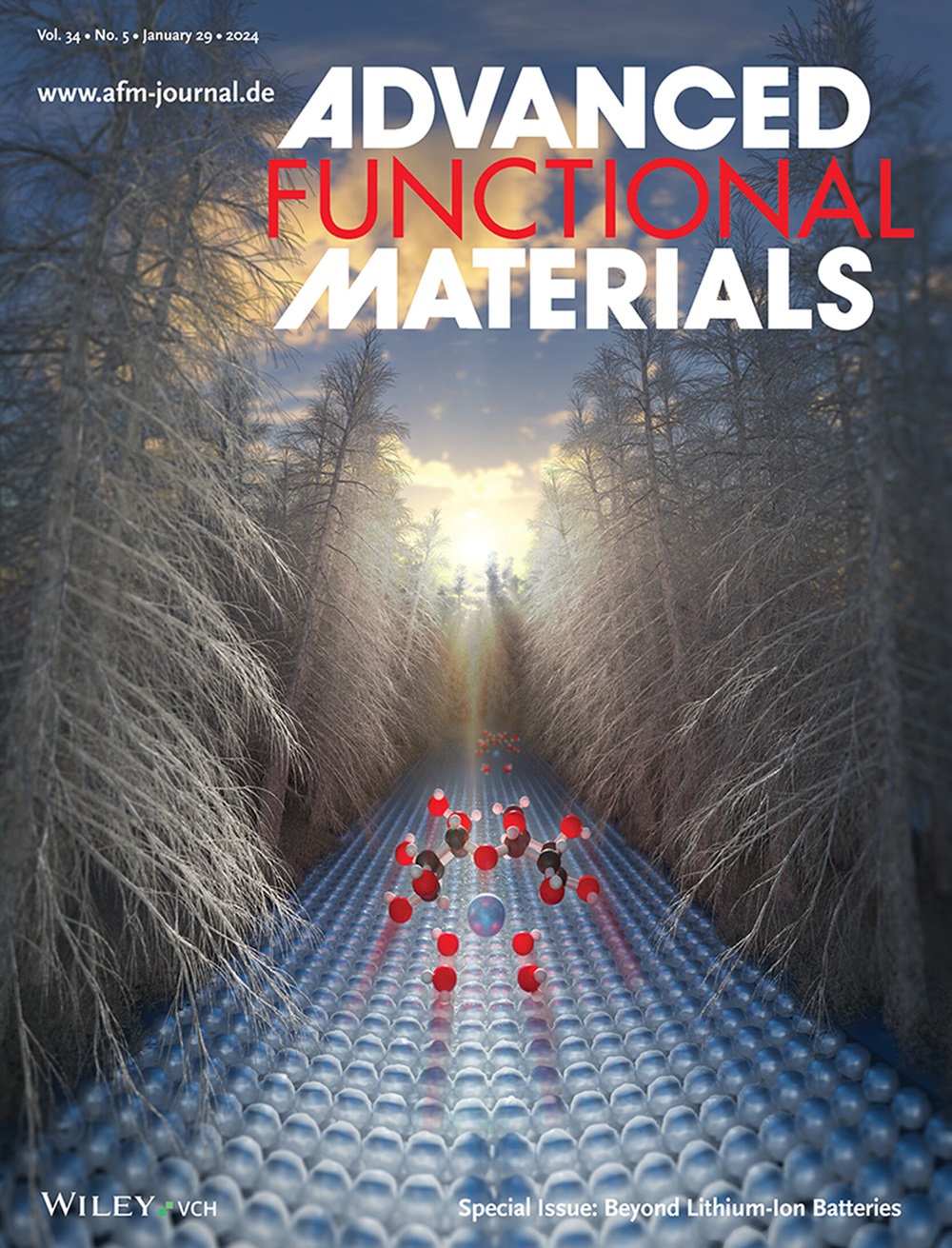Efficient Screening of Electrolyte Additives for High‐Temperature, High‐Voltage Lithium Batteries via Fukui Functions
IF 19
1区 材料科学
Q1 CHEMISTRY, MULTIDISCIPLINARY
引用次数: 0
Abstract
Developing stable electrolytes for high‐voltage and high‐temperature lithium batteries remains a critical challenge due to severe interfacial degradation. This study presents a reactivity‐guided screening strategy based on density functional theory (DFT)‐derived Fukui functions to identify electrolyte additives that promote robust, inorganic‐rich electrode‐electrolyte interphases. Fukui function analysis achieves high prediction accuracy, outperforming conventional HOMO‐based screening, and demonstrates superior reliability in additive selection. By evaluating local electrophilic and nucleophilic reactivity, 4‐(Trifluoromethyl)thiobenzamide (TFSBN) is prioritized as a promising additive, with sulfur (S), fluorine (F), and nitrogen (N) sites facilitating oxidation. This, together with the preferential accumulation of TFSBN at the NCM811 interface, tailors the Li利用福井函数高效筛选高温高压锂电池电解液添加剂
由于界面严重退化,为高压高温锂电池开发稳定的电解质仍然是一个严峻的挑战。本研究提出了一种基于密度泛函理论(DFT)衍生的Fukui函数的反应性引导筛选策略,以识别促进坚固,无机富电极-电解质界面的电解质添加剂。福井函数分析实现了较高的预测精度,优于传统的基于HOMO的筛选,并在添加剂选择中表现出优越的可靠性。通过评估局部亲电性和亲核性,4‐(三氟甲基)噻吩酰胺(TFSBN)被优先考虑为一种有前景的添加剂,其硫(S)、氟(F)和氮(N)位点有利于氧化。这一点,加上TFSBN在NCM811界面上的优先积累,调整了Li+溶剂化结构,并使形成了一个强大的富无机电极-电解质界面,抑制了过渡金属的溶解和阴极开裂。实验验证表明,TFSBN改性电解质(1TF)显著提高了电池在高压(≥4.8 V)和高温(≥55°C)工作条件下的性能。具有1TF的电池还表现出卓越的快速充电稳定性和袋状电池兼容性。这项工作为电解质添加剂设计建立了一个可推广的计算实验框架,加速了极端操作条件下高能量密度电池的发展。
本文章由计算机程序翻译,如有差异,请以英文原文为准。
求助全文
约1分钟内获得全文
求助全文
来源期刊

Advanced Functional Materials
工程技术-材料科学:综合
CiteScore
29.50
自引率
4.20%
发文量
2086
审稿时长
2.1 months
期刊介绍:
Firmly established as a top-tier materials science journal, Advanced Functional Materials reports breakthrough research in all aspects of materials science, including nanotechnology, chemistry, physics, and biology every week.
Advanced Functional Materials is known for its rapid and fair peer review, quality content, and high impact, making it the first choice of the international materials science community.
 求助内容:
求助内容: 应助结果提醒方式:
应助结果提醒方式:


